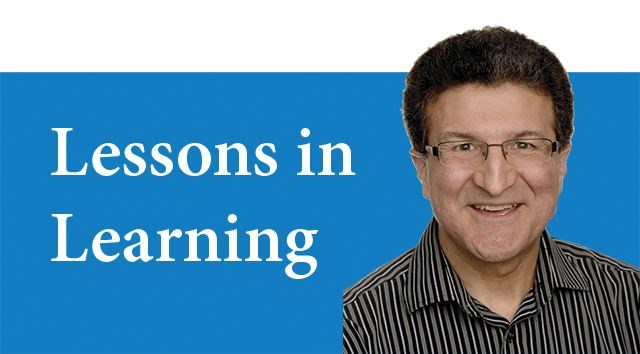Harold Kushner experienced a parent's worst nightmare, to see one's child suffer and experience a premature death.
When he learned that his son Aaron had progeria, a rare premature aging disease, Kushner embarked on a journey to understand why such a horrible misfortune would strike his child and impact his entire family.
As humans, we have always struggled to comprehend suffering. The problem is that misfortune and suffering are part of the human condition and none of us are immune.
Being a rabbi, Kushner turned to his faith to try to understand what he was experiencing but had difficulty finding the answer. He chronicled his journey in a book that has now become a classic, When Bad Things Happen to Good People, published several years after the death of his son.
The conclusions that Kushner comes to are not necessarily what one would expect from a religious leader. He notes that God never promised a life without pain, God only promised that we would not walk alone.
Believers may ask for healing and for difficulties to be taken away but the suffering often continues. Tragically, sometimes friends and family even die.
We may ask ourselves why these things happened or what we have done to deserve them, but we normally won't find answers to these queries.
The key, says Kushner, is to find meaning in our suffering. This, interestingly, is the same advice that Jewish psychiatrist Victor Frankl gave to his fellow inmates in a Nazi concentration camp. By finding meaning, we can find the strength and perseverance to overcome suffering.
Terry Fox, for example, in following this thinking, becane one of Canada's greatest heroes. When he was as a young athlete, he lost his leg to cancer. He responded by embarking on the Marathon of Hope to raise money for cancer research. When he died before completing his journey, people around the world responded by taking up his cause. To date, more than $650 million have been raised in his honour. Others with the same diagnosis as Terry now survive because of advances in research that these funds have made possible.
There is tremendous beauty in this kind of human empathy and compassion. When we see others suffer, we seek to comfort them, to love them and to let them know that they are not alone. We also seek to make the situation better.
As a result, tremendous changes are happening every day. Not only do we see scientific advances, we see the positive progress of human rights on a trajectory that cannot be stopped even by the most cruel, selfish and ridiculous of leaders. We need only look back at the lynch mobs and concentration camps of the last century to see how far we have come.
When we find meaning in our suffering and in the suffering of our neighbours, we are able to change the world.
Because we still feel pain, however, grieving remains an important part of the process in dealing with suffering. Indeed, writing this book was a vital part of Harold Kushner's own effort to heal from the loss of his son. When we are ready to move beyond questions of why bad things happen to good people, we can focus on how we will respond.
The fact that Aaron Kushner's life was cut short was tragic but he touched the world in beautiful, meaningful and amazing ways. The world certainly did become a better place because of his presence among us. He taught his father, and he teaches us, that love and compassion not only make us human, they are powerful forces of positive change.
Gerry Chidiac is a champion for social enlightenment, inspiring others to find their greatness in making the world a better place. For more of his writings, go to www.gerrychidiac.com



